Parkway Drive's 9 tips for a killer live show
Jeff Ling and Luke Kilpatrick talk gigging and guitars
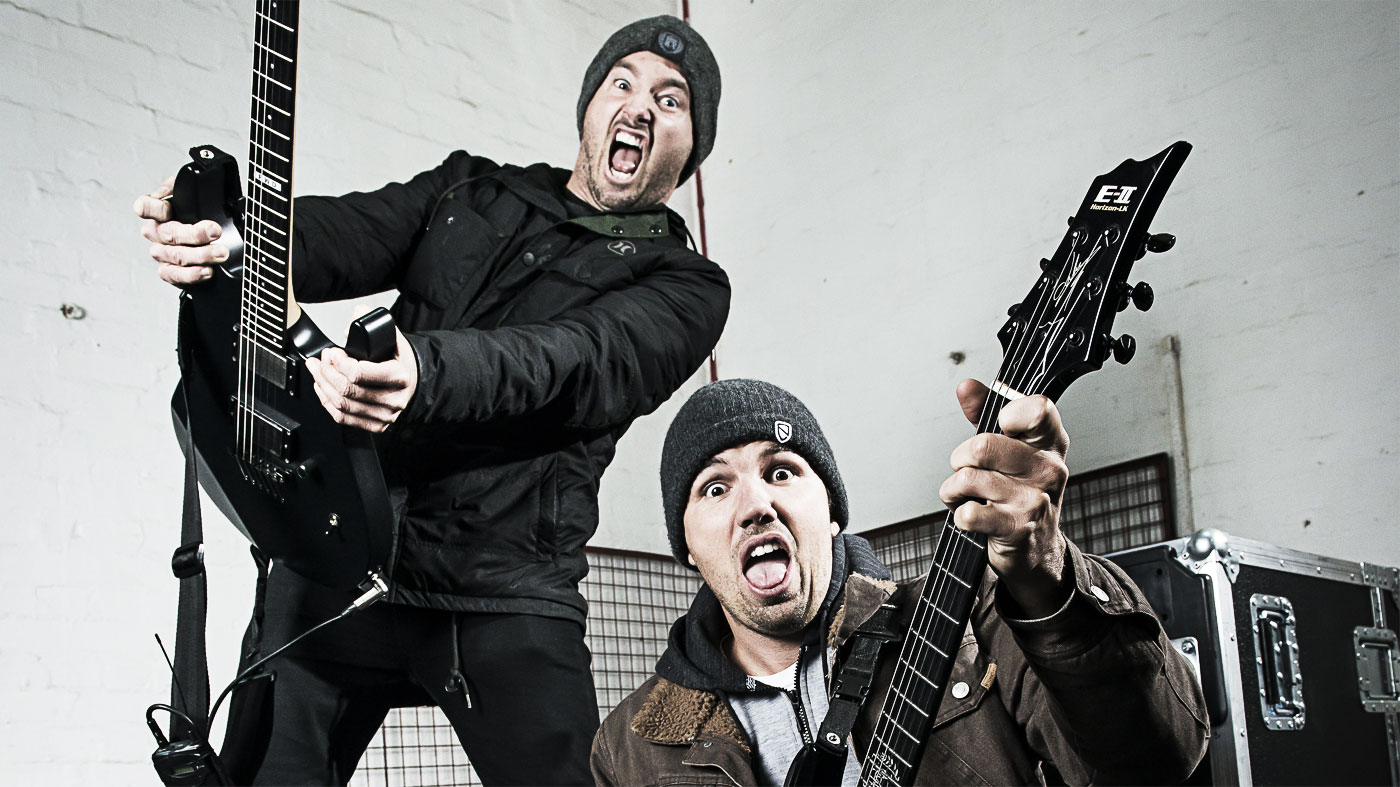
Introduction
Parkway Drive have become an unstoppable force on stage. The guitar team behind metalcore’s modern success story tell us their tips for killing it live...
Parkway have been dependably crushing live shows over 13 years of hard graft and bludgeoning beatdowns
In recent years, there’s been plenty of open discussion over which bands are ready to step up, seize the torch and headline the metal festivals of tomorrow.
For many, Parkway Drive have become one of the brightest hopes, having built their fierce reputation the old way - through dependably crushing live shows over 13 years of hard graft and bludgeoning beatdowns.
It’s not been particularly easy for the Australian metalcore bruisers, nor has it been overly calculated. Truth be told, the fact their plectrums come adorned with the world-famous Poo Emoji says a lot about how seriously this band take themselves.
We find guitarists Jeff Ling and Luke Kilpatrick sat backstage before their first headline show at London’s Brixton Academy, looking as relaxed as can be, while sharing their tips to becoming all-conquering masters of the stage...
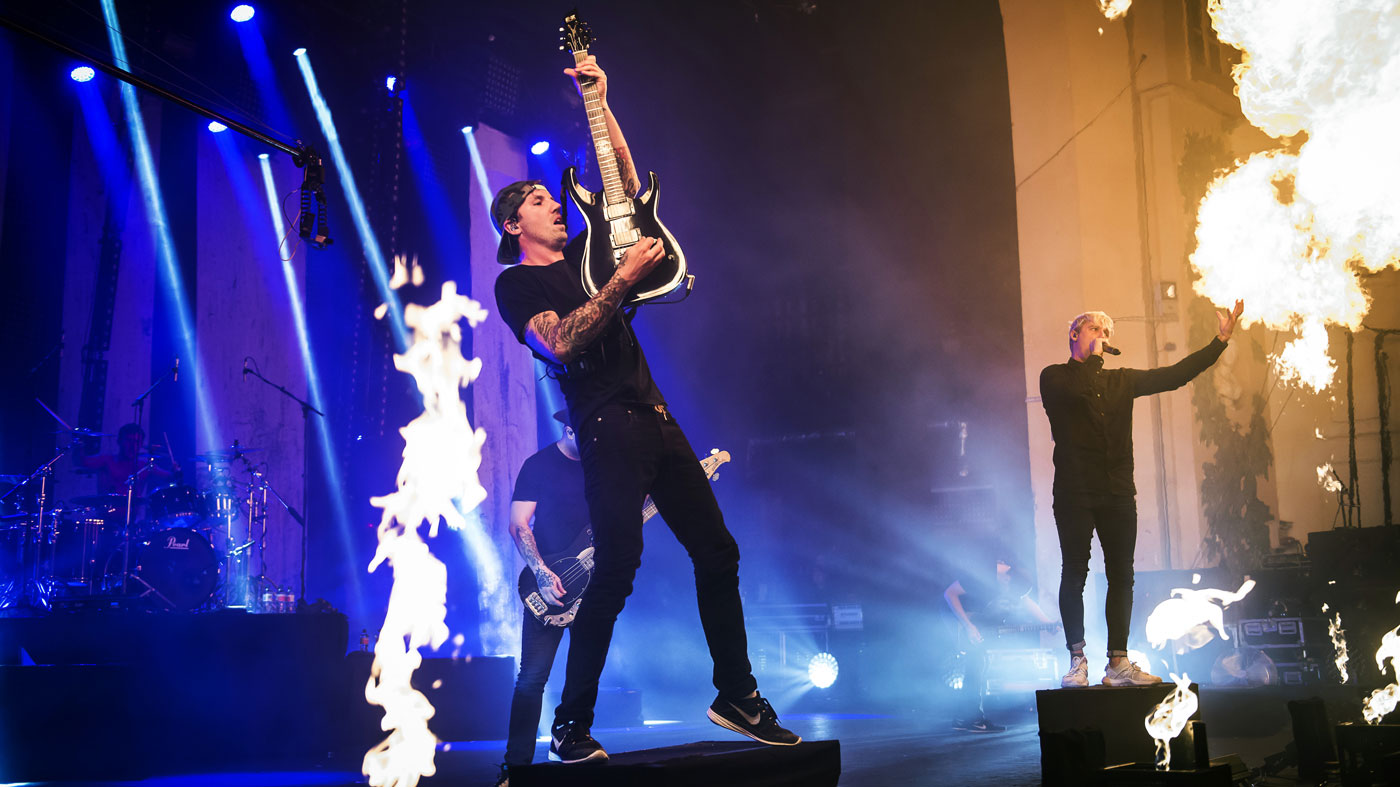
1. First gigs will always suck
It’s taken time for Parkway Drive to become the live band they are today…
Our first few gigs were a mess, completely awful
Jeff: “Our first few gigs were a mess, completely awful. We had terrible gear, terrible style, bad musicianship - the worst of the worst. Like a hamburger with 15 ingredients on it! We were really lucky to get off the ground when we did.”
Luke: “We were clueless, we didn’t even have dynamic control, so there was horrible feedback in between every chug. It’s like any band that starts, we were just a garage group practising and all of a sudden we were practising on stage in front of people.
“We had a couple of good tours at the start, which forced us to play better shows early on and try harder.”
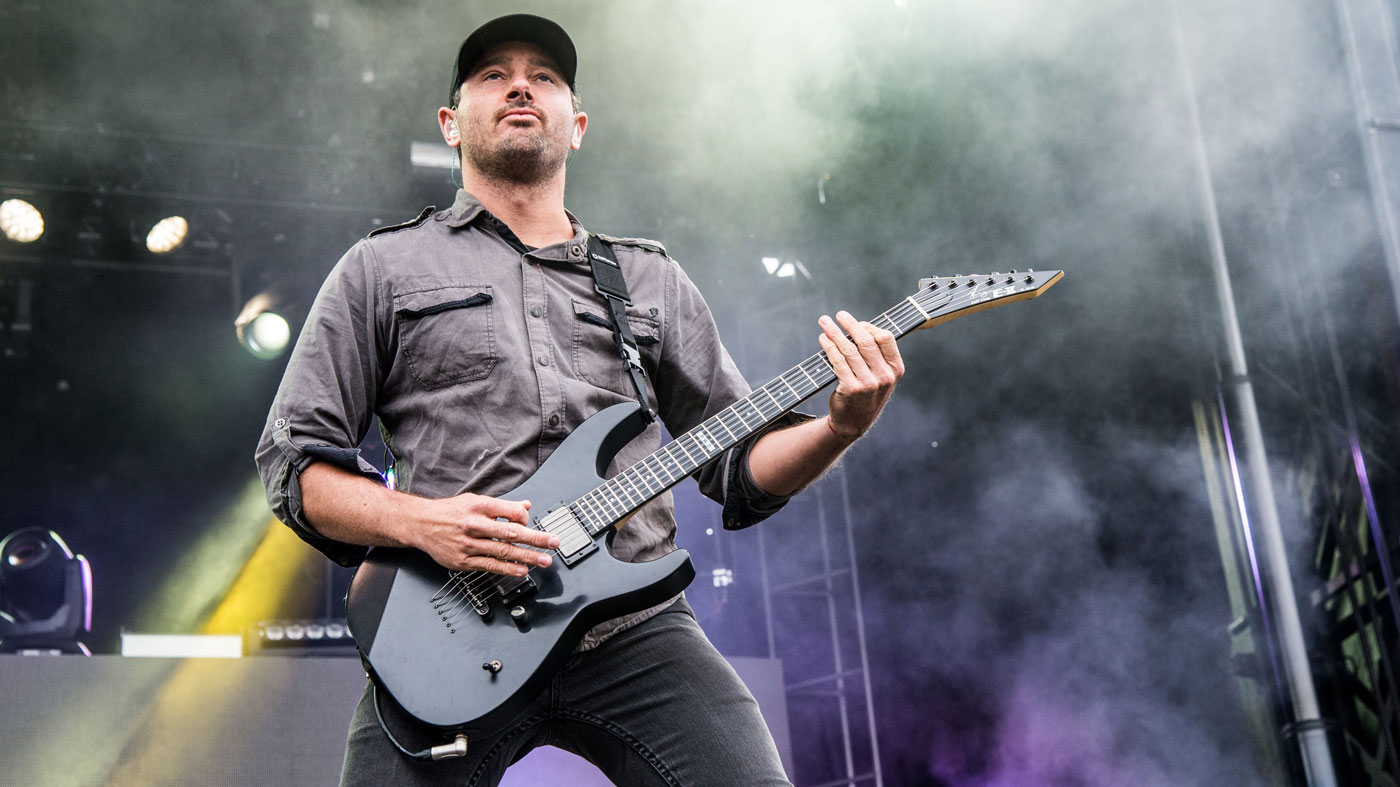
2. Don't go overkill on gear
The more of it that you have, the more there is to go wrong...
It’s like, ‘Oh wow, Johnny’s got 8,000 pedals!’ But actually, Johnny’s also got 8,000 problems
Jeff: “We’re not gear nazis at all. Our theory is the more gear you have, the more time your stage tech will be running around, pulling stuff out to try and figure what’s gone wrong.
“We’ve toured with heaps of bands that have all this equipment. And it’s like, ‘Oh wow, Johnny’s got 8,000 pedals!’ But actually, Johnny’s also got 8,000 problems that come along with it. When the PA is punching out 105dB, you don’t really hear any of that shit anyway. All of it gets lost in the mix.”
Luke: “There’s a repeating pattern of musicians getting carried away, over the top or cocky with their gear, just like they do with their music.
“You can have a pedalboard that’s two metres long, and it might look great and be fun for you, but to the crowd it makes no difference. I find the best musicians are the guys on the street with a hat in front of them with only five bucks in it!”
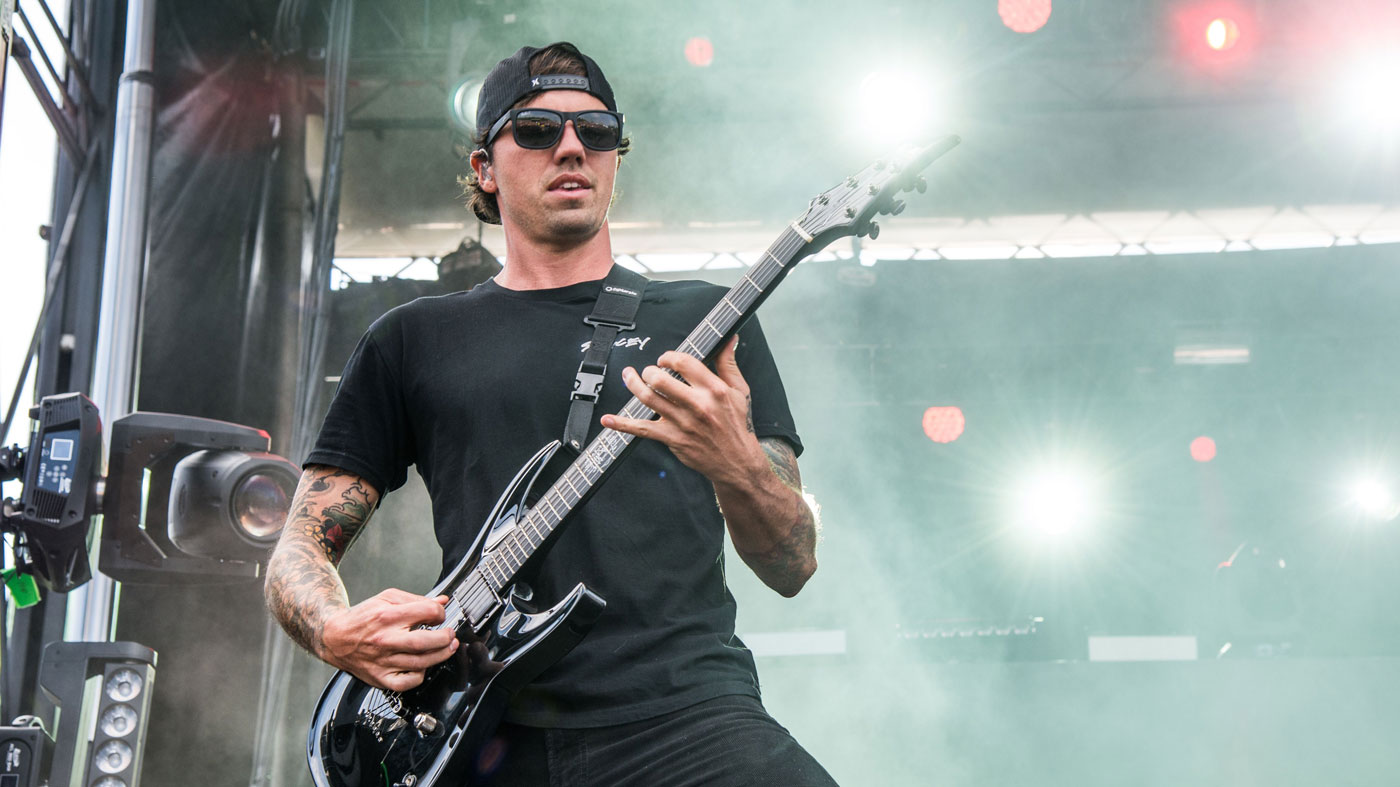
3. Control your distortion
Higher gain situations call for a greater command of your levels...
It would be absolutely impossible to do what we’re doing without noise suppressors
Jeff: “It would be absolutely impossible to do what we’re doing without noise suppressors. If you’re in a rock band that use more vintage Marshall types of sounds then you might get away with it, but not in heavy metal.
“The Kemper Profilers we use live have an in-built suppressor that’s good enough for our needs. Some people actually complain about it, but I always think the main reason why we don’t need an external suppressor on top is because there are no wedges on stage. Those things firing 120dB straight into your high-gain pickups? Death!”
Luke: “And back when we were using Peavey 6505 heads on stage, we always used the Boss NS-2, which was perfect for cleaning our signal up. But with our new live rig now, it became something we could kick out of the chain without missing too much.”
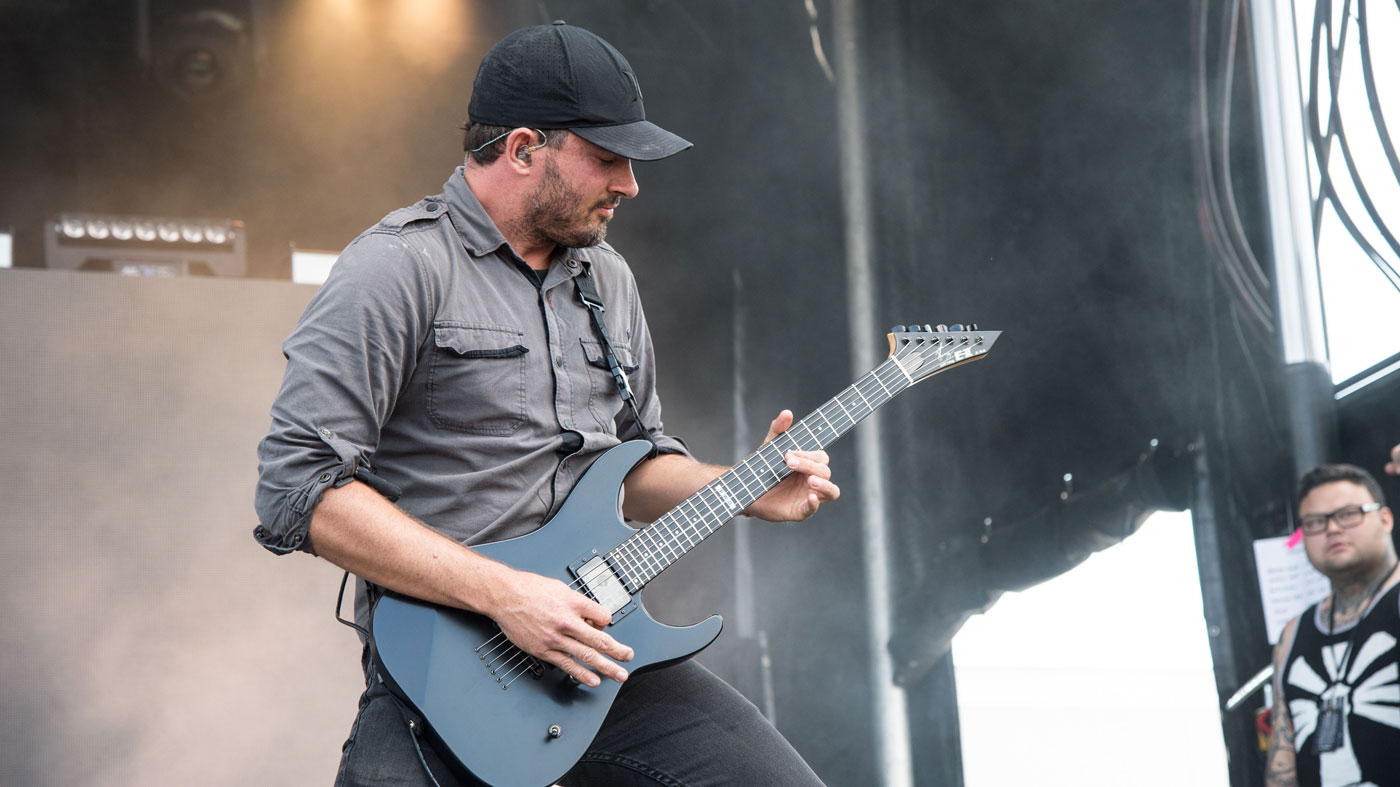
4. Don't over-think the gig
Parkway prefer to stay as relaxed as possible before the show...
Anyone that walks into our dressing room before stage time will probably see some half-arsed stretching
Luke: “Anyone that walks into our dressing room before stage time will probably see some half-arsed stretching, a lot of shit-talking and fighting with each other. I might do a few chromatics during the intro tape, that’s about it. There are no hour-long routines before we walk out.”
Jeff: “I do two little shits before I go on stage. There’s nothing intense or serious going on. We’re pretty slack, there’s not even a guitar backstage. Seriously, we get our guitars about two minutes before we walk out. I’ll do a few light bends so I can throw it back to my tech if he hasn’t stretched my strings out enough. Our music’s not technical enough to bother warming up.”
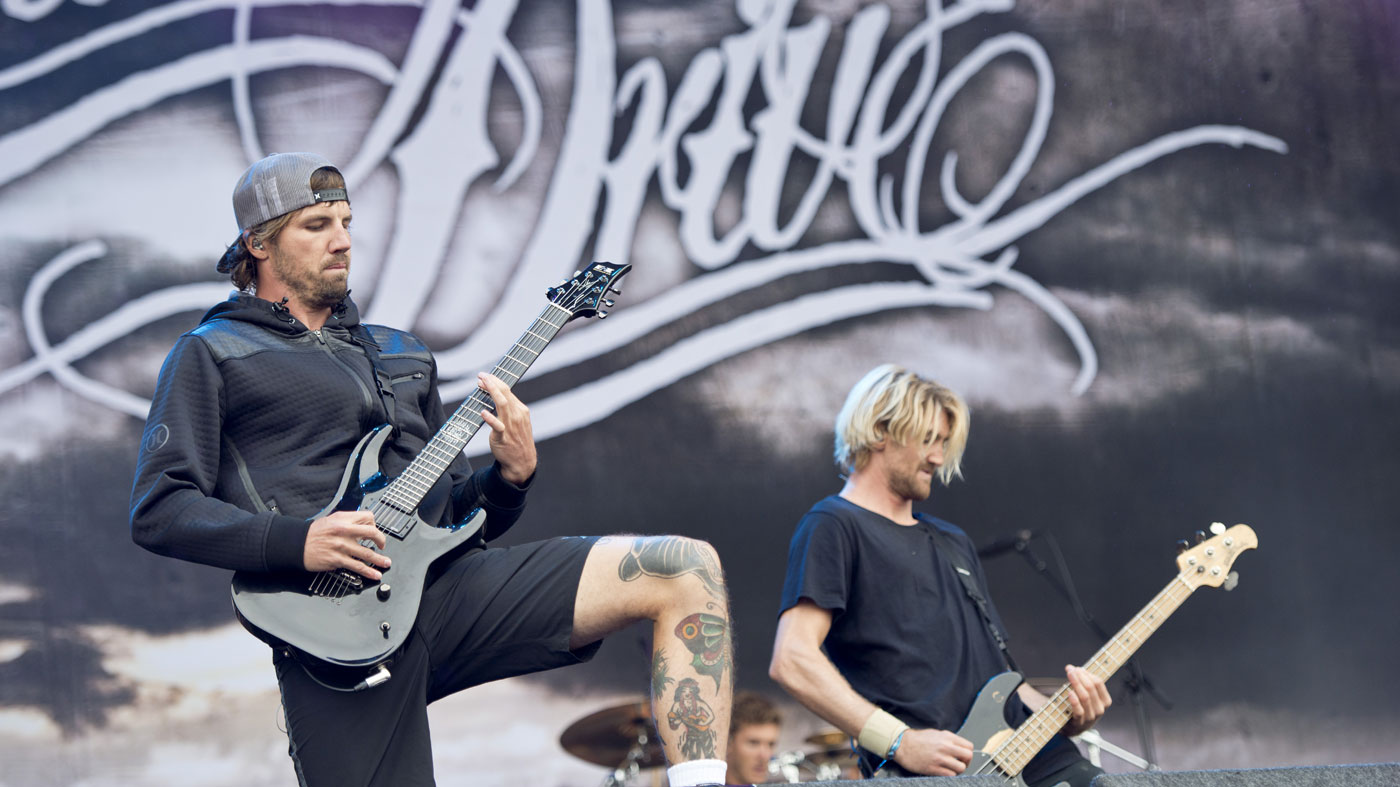
5. Songwriting is always more impressive
For Jeff and Luke, you’re only as good as your song...
A lot of musicians are too good at being musicians compared to being songwriters
Jeff: “When we first started writing, it was all about ripping as many notes as we could, like a competition over whoever had the riff with the most notes - 9,000 in a bar or whatever! That was just our mentality at the time and we’ve learned over time that simplicity works better.
“I started writing things that got stuck in my head first, then I thought, ‘Well let’s see if works on other people too!’ If it sounds good to me, it’s got a chance!”
Luke: “A lot of musicians are too good at being musicians compared to being songwriters. They might sound impressive to another guitarist, but for the most part, it’s just things that are unfathomable to all the regular people out there. And just think - how many guitarists are there to regular people?”

6. In-ears make you work harder
Crystal clarity on stage has forced Jeff and Luke to play tighter...
If kids want to sound professional, they need to know how to control their sound
Luke: “Now we use in-ear monitors instead of wedges, we can hear everything. It’s so clear, which makes things a lot harder than you think.
“Ultimately, that’s made us better players, because you have to develop techniques to hit all the notes just right. If kids want to sound professional, they need to know how to control their sound.”
Jeff: “Make a little ping or the tiniest fuck-up and we’ll all look at each other in a ‘ha-ha, you did that’ - but not in a ‘you screwed up’ kinda way. You’re almost waiting for the other guys to fuck up to laugh at them! You might be feeding off the crowd and enjoying that, but when you hear a mistake, it’s hilarious!
“With in-ears, all the shitty habits we used to have, like our palms not resting properly or picking too much using the corner of the pick and scratching, we can’t get away with that anymore. I don’t even know how we were even a band. We were shit, maybe we still are, but we were a lot more back then before the in-ears! [laughs]”

7. Write vocal guitar lines
Jeff and Luke now favour the bigger, sing-along Maiden-influenced hooks...
Our secret is the crowd - the energy from them gets you stoked
Jeff: “Our biggest guitar hooks probably come from my Metallica obsession. If you stay musical, people can sing the melodies - that was my biggest revelation: simplicity and effectiveness.
“In truth, you never really know how people are going to react. It was in Bristol about six years ago when the crowd first sang the riffs instead of the vocals! We came off stage wondering what the hell happened, and since then it’s kinda just been building.
“Now whenever there’s a catchy riff, they’ll start singing it. South America may go extra crazy, but let’s not stray from the fact Bristol started it!”
Luke: “Our secret is the crowd - the energy from them gets you stoked. If they don’t perform for us, we won’t perform for them! That’s the deal. Everyone has to put 100 per cent in, that’s just what happens. It’s harder to fake the energy… and we’re too old to fake it anyway!”
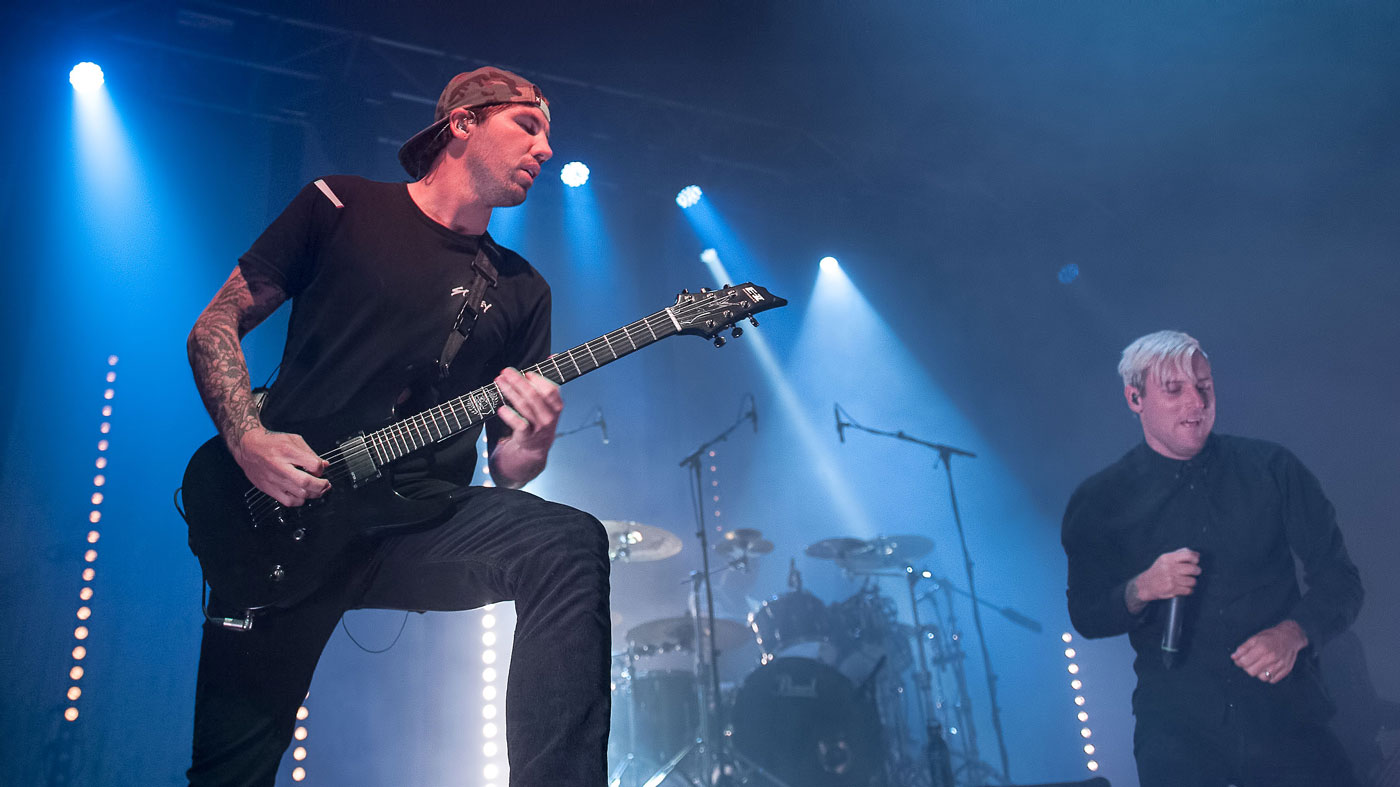
8. Don't expect anything
Because that sets you up for failure...
That whole ‘fake it til you make it’ thing in the music industry, people see straight through it
Jeff: “Expectation is suicide. If you expect shit, you’re finished… you’ve got no hope! We were seeing all these places as a group of mates that just went along for the ride, and I think that helped a lot.
“Obviously what’s happening now is very different to what it was like back then. That whole ‘fake it til you make it’ thing in the music industry, people see straight through it. If you’re a fake band, they’ll bottle you and scream for Slayer.”
Luke: “If you start a band and all you want to be is the next anything, you’re just setting yourself up for disappointment. Just have fun with it and work hard, do your shit, but remember it’s for fun, first and foremost. Just think how many musicians have been let down… That’s the way this industry is going!
“A few years ago we swore we’d never let anyone touch our cabinets or change our strings… we’d always set up our own gear. That’s been one of the biggest changes, the amount of crew we have working for us now. Sure enough, we’ve sold out! [laughs]”

9. There's more to life
For Parkway, experiences outside of music remain just as important...
The ideas just pop in and it comes across authentically because it’s just clueless!
Jeff: “I realised I wasn’t some Steve Vai that could absolutely barbecue the neck all day long. Plus, there’s too many other aspects in my life that I enjoy, like surfing or sports.
“I only have a limited amount of time I can give the guitar… I’m too selfish! People don’t realise how clueless we are. The ideas just pop in and it comes across authentically because it’s just clueless!
“We’re not theoretical guitar players, I’ve only just started to learn what key I’m playing in because I might have to use AutoTune on Winston’s [McCall, frontman] voice at home and need to know the key to make it work.”
Luke: “We never wanted to be Metallica… we don’t really know any exercises to be honest. We just do whatever we want and it happens. For example, I didn’t ever learn how to play triplet riffs properly. That probably just came from Jeff writing one without even knowing and me having to learn it.”
Parkway Drive’s fifth album, Ire, is available now on Epitaph Records.
Amit has been writing for titles like Total Guitar, MusicRadar and Guitar World for over a decade and counts Richie Kotzen, Guthrie Govan and Jeff Beck among his primary influences. He's interviewed everyone from Ozzy Osbourne and Lemmy to Slash and Jimmy Page, and once even traded solos with a member of Slayer on a track released internationally. As a session guitarist, he's played alongside members of Judas Priest and Uriah Heep in London ensemble Metalworks, as well as handling lead guitars for legends like Glen Matlock (Sex Pistols, The Faces) and Stu Hamm (Steve Vai, Joe Satriani, G3).


